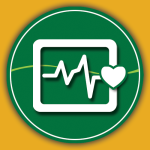Healthy Living
 Along with our comprehensive and affordable medical benefits plans, we offer a variety of programs to help you get in shape, quit smoking, seek assistance for stress management and obtain healthy foods along with meeting other health and wellness needs. It is all about you and your body!
Along with our comprehensive and affordable medical benefits plans, we offer a variety of programs to help you get in shape, quit smoking, seek assistance for stress management and obtain healthy foods along with meeting other health and wellness needs. It is all about you and your body!
Nutrition
Healthy eating is not about strict dietary limitations, staying unrealistically thin, or depriving yourself of the foods you love. Rather, it’s about feeling great, having more energy, and stabilizing your mood. Nutritious, balanced meals and healthy snacks may reduce your risk of heart disease and stroke by helping you increase your intake of heart-healthy nutrients, manage your weight, keep your blood pressure down, control your blood sugar levels and lower your cholesterol. For more information, tools and resources on healthy eating, visit WebMD.
Stress Management
 One-quarter of Canadians consider their work to be a significant source of stress (Source: Canadian Health Network). Perhaps you include yourself in that equation. Stress causes physical, psychosocial and behavioural signs and symptoms but the risk is not just to personal well-being. In the workplace, stress can translate into performance issues, job dissatisfaction, absenteeism, staff turnover, compromised working relationships, lack of motivation and creativity. Therefore, stress management is key to workplace wellness. The Employee Assistance Program, provided through Shepell FGI, provides services that assist with dealing with stress issues. To learn more about the effect of stress on the body, visit Healthline’s the Effects of
One-quarter of Canadians consider their work to be a significant source of stress (Source: Canadian Health Network). Perhaps you include yourself in that equation. Stress causes physical, psychosocial and behavioural signs and symptoms but the risk is not just to personal well-being. In the workplace, stress can translate into performance issues, job dissatisfaction, absenteeism, staff turnover, compromised working relationships, lack of motivation and creativity. Therefore, stress management is key to workplace wellness. The Employee Assistance Program, provided through Shepell FGI, provides services that assist with dealing with stress issues. To learn more about the effect of stress on the body, visit Healthline’s the Effects of
stress on the Body page.
Smoking
 The College currently has a smoke-free campus policy. During this time, the campuses will be smoke-free and will be conducting full consultations to understand the potential impact and develop a permanent policy. For more information on this policy, please see here.
The College currently has a smoke-free campus policy. During this time, the campuses will be smoke-free and will be conducting full consultations to understand the potential impact and develop a permanent policy. For more information on this policy, please see here.
If you are a smoker yourself, you are probably aware that smoking harms nearly every organ of the body and causes many diseases and reduces the health of smokers in general. Quitting smoking cuts cardiovascular risks. Just 1 year after quitting smoking, your risk for a heart attack drops sharply. Within 2 to 5 years after quitting smoking, your risk for stroke could fall to about the same as a nonsmoker’s. If you quit smoking, your risks for cancers of the mouth, throat, esophagus, and bladder drop by half within 5 years. Ten years after you quit smoking, your risk for lung cancer drops by half. For more information, refer to the Centers for Disease Control and Prevention.
Quit now by getting in touch with the Smokers’ Helpline. If you would like to be part of the solution, consider joining the Quit Smoking Community.
Alcohol
 The College also has a policy on Alcohol on Campus. The goal is to maintain campus protocols and procedures to ensure the responsible service of alcohol at all College licensed locations and at College sponsored events.
The College also has a policy on Alcohol on Campus. The goal is to maintain campus protocols and procedures to ensure the responsible service of alcohol at all College licensed locations and at College sponsored events.
Not commonly acknowledged, drinking too much – on a single occasion or over time – can take a serious toll on your health. Alcohol interferes with the brain’s communication pathways, and can affect the way the brain looks and works. These disruptions can change mood and behavior, and make it harder to think clearly and move with coordination. Potential heart problems include cardiomyoathy, arrhythmias, stroke and high blood pressure. Alcohol could also cause damage to your liver and pancreas as well as potentially develop cancer. Aside from body health issues, over-consumption of alcohol can affect your social life in a small way (friendships/depression) as well as in a big way (crime/bad judgement).
If you or someone you know is having an issue with alcohol abuse, please refer to the Ottawa Area Intergroup of Alcoholics Anonymous. If you notice that yourself or someone on campus is intoxicated, please alert Security Services.